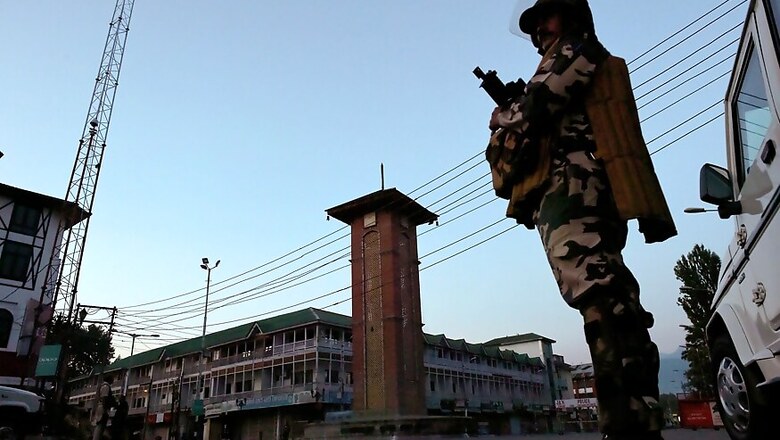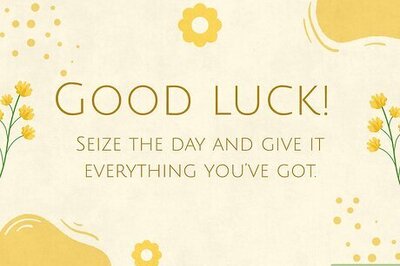
views
Twenty-six years ago, Parveena Ahangar's son Javed was picked up allegedly by security forces in Kashmir; he never returned.
"The law is selective. It is for people like me and Burhan. But what about the security forces? I fought for justice for 26 years. I did not even get my son’s dead body. How do I sit in silence," she asks.
"My son was shot with three pellets. Why do the local police indulge in this insensitive act? Almost 700 kids have been blinded; how will their parents live now? One Burhan may have died, but a 1,000 Burhans have risen in this stead," she says.
Often referred to as Kashmir's Iron Lady, Parveena has started an organization — Association of Parents of Disappeared Persons — to fight legally and politically for what she believes is the normal life. The resident of Narkura in Budgam says curfew may be a way of life, but she will not let it silence her.
Omar Abdullah and Mehbooba Mufti are both doing formalities for the sake of the chair. Despite being Kashmiris themselves, they do not truly understand or feel the pain of the people. But we will not sit in silence, especially when 10,000 are missing," Parveeba says.
While one mother battles obstinately for her missing son, a teacher worries about the future of her students and of the valley.
Muslim Jaan — a 55-year-old professor who teaches journalism at the University of Kashmir — empathises with the chief minister.
"I feel bad for Mehbooba, she has been a ground-politician. But she is not the same anymore. Maybe she is reeling under the compulsions of the chair. Earlier she would go to the people and grieve with them, but now she says there are only five per cent of them on the streets, which is untrue," she says.
With the university shut for the last 47 days, Muslim says her movements are restricted and she feels dismayed every day.
"There are days when I find it difficult to eat. The voices here are smothered, children face pellets; as a mother, this pains me. Children here live in trauma, blinded by pellets, there is a whole generation out there. It is not a natural catastrophe but a man-made disaster. It makes me feel that we are living in another world, not in possession of the same rights as those of other citizens.
"I am in two minds about whether my children should stay in Kashmir. They want to study outside as they are scared here. I empathise with frustrated mothers who allow their children to go out on the streets, knowing they may not return at the end of the day," she says.
"I do not want my son to pelt stones on the streets. I would instead want him to express his views in a non-violent manner. Even though I have not suffered myself, I understand the suffering of others. They need to be listened to," she says.














Comments
0 comment